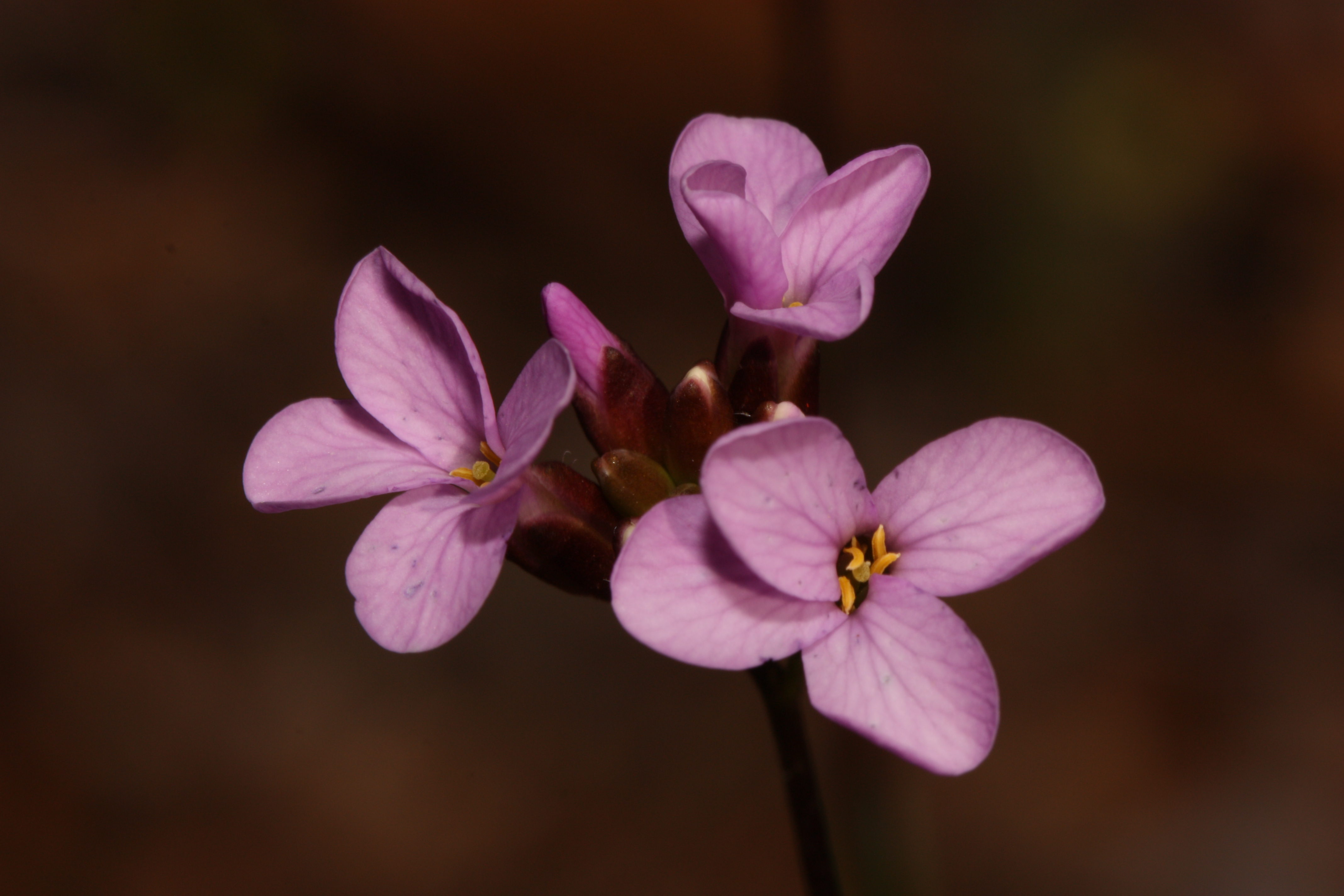Arabis on:
[Wikipedia]
[Google]
[Amazon]
''Arabis'' ,''Sunset Western Garden Book,'' 1995:606–607 or rockcress, is a


Natural History Museum
{{Taxonbar, from=Q157396 Brassicaceae genera
genus
Genus ( plural genera ) is a taxonomic rank used in the biological classification of living and fossil organisms as well as viruses. In the hierarchy of biological classification, genus comes above species and below family. In binomial nom ...
of flowering plant
Flowering plants are plants that bear flowers and fruits, and form the clade Angiospermae (), commonly called angiosperms. The term "angiosperm" is derived from the Greek words ('container, vessel') and ('seed'), and refers to those plants th ...
s, within the family Brassicaceae
Brassicaceae () or (the older) Cruciferae () is a medium-sized and economically important family of flowering plants commonly known as the mustards, the crucifers, or the cabbage family. Most are herbaceous plants, while some are shrubs. The leav ...
.
Description
The species are herbaceous,annual
Annual may refer to:
*Annual publication, periodical publications appearing regularly once per year
** Yearbook
** Literary annual
*Annual plant
*Annual report
*Annual giving
*Annual, Morocco, a settlement in northeastern Morocco
*Annuals (band), ...
or perennial plant
A perennial plant or simply perennial is a plant that lives more than two years. The term ('' per-'' + '' -ennial'', "through the years") is often used to differentiate a plant from shorter-lived annuals and biennials. The term is also wide ...
s, growing to 10–80 cm tall, usually densely hairy, with simple entire to lobed leaves 1–6 cm long, and small white four-petaled flower
A flower, sometimes known as a bloom or blossom, is the reproductive structure found in flowering plants (plants of the division Angiospermae). The biological function of a flower is to facilitate reproduction, usually by providing a mechani ...
s. The fruit
In botany, a fruit is the seed-bearing structure in flowering plants that is formed from the ovary after flowering.
Fruits are the means by which flowering plants (also known as angiosperms) disseminate their seeds. Edible fruits in particu ...
is a long, slender capsule containing 10-20 or more seed
A seed is an embryonic plant enclosed in a protective outer covering, along with a food reserve. The formation of the seed is a part of the process of reproduction in seed plants, the spermatophytes, including the gymnosperm and angiospe ...
s. Natural habitat for ''Arabis'' species is rocky mountain/cliff sides or dry sites. Cultivation of ''Arabis'' is best suited for rock gardens or container gardens. This genus is pollinated by members of Apieae and Lepidoptera.
Taxonomy
Though traditionally recognized as a large genus with many Old World andNew World
The term ''New World'' is often used to mean the majority of Earth's Western Hemisphere, specifically the Americas."America." ''The Oxford Companion to the English Language'' (). McArthur, Tom, ed., 1992. New York: Oxford University Press, p. ...
members, more recent evaluations of the relationships among these species using genetic data suggest there are two major groups within the old genus ''Arabis''. These two groups are not each other's closest relatives, so have been split into two separate genera. Most of the Old World members remain in the genus ''Arabis'', whereas most of the New World members have been moved into the genus ''Boechera
''Boechera'' (rockcress) is a genus of the family Brassicaceae. It was named after the Danish botanist Tyge W. Böcher (1909–1983), who was known for his research in alpine plants, including the mustards ''Draba'' and ''Boechera holboellii''. ...
'', with only a few remaining in ''Arabis''.Al-Shehbaz, Ihsan. Nomenclatural Notes on Eurasian Arabis (Brassicaceae). Novon 15: 519-524 (2005)
Species
;Selected species *'' Arabis aculeolata'' *'' Arabis alpina'' (alpine rockcress) *'' Arabis armena'' (Armenian rockcress) *'' Arabis auriculata'' *''Arabis blepharophylla
''Arabis blepharophylla'' is a species of rock cress known by the common names coast rock cress and rose rock cress. It is endemic to California, growing mostly in the San Francisco Bay Area and nearby low-elevation California Coast Ranges.
Des ...
'' (coast rockcress)
*'' Arabis caucasica''
*'' Arabis cypria''
*''Arabis glabra
''Arabis glabra'', commonly known as tower rockcress or tower mustard, is a tall, slim, grey-green plant with small creamy flowers at the top of the stem. It usually grows on poor chalky or sandy soils, in open situations. It is native to Europe, ...
'' (tower mustard)
*'' Arabis hirsuta'' (hairy rockcress)
*'' Arabis kazbegi'' (Kazbegian rockcress)
*'' Arabis kennedyae''
*'' Arabis lemmonii''
*'' Arabis macdonaldiana''
*'' Arabis procurrens'' (spreading rock cress)
*'' Arabis pycnocarpa'' (slender rock cress)
*'' Arabis scabra'' (Bristol rockcress)
*''Arabis serotina
''Borodinia serotina'' is a rare species of flowering plant in the mustard family known by the common name shale barren rockcress. It is native to eastern West Virginia and western Virginia in and around the Shenandoah Valley, where it is known f ...
''
Cultivation
Some species, notably ''Arabis alpina'', are cultivated asornamental plant
Ornamental plants or garden plants are plants that are primarily grown for their beauty but also for qualities such as scent or how they shape physical space. Many flowering plants and garden varieties tend to be specially bred cultivars that ...
s in garden
A garden is a planned space, usually outdoors, set aside for the cultivation, display, and enjoyment of plants and other forms of nature. The single feature identifying even the wildest wild garden is ''control''. The garden can incorporate bot ...
s. Many others are regarded as weed
A weed is a plant considered undesirable in a particular situation, "a plant in the wrong place", or a plant growing where it is not wanted.Harlan, J. R., & deWet, J. M. (1965). Some thoughts about weeds. ''Economic botany'', ''19''(1), 16-24. ...
s.
References
External links
Natural History Museum
{{Taxonbar, from=Q157396 Brassicaceae genera